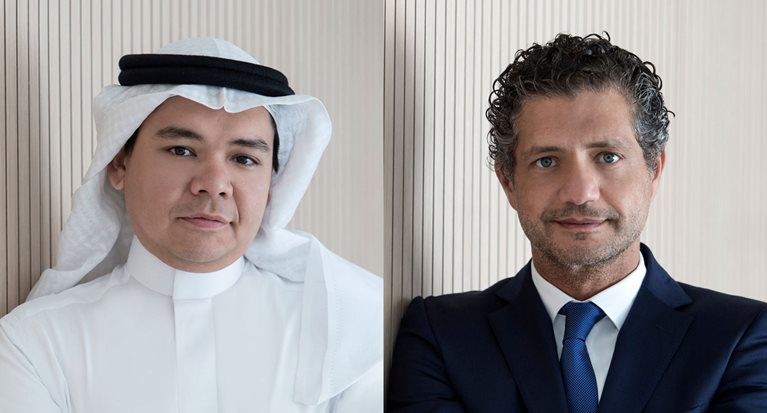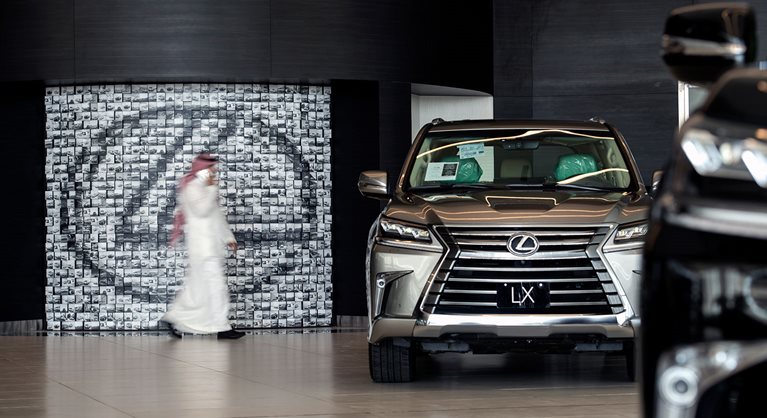Abdul Latif Jameel (ALJ) is a diversified family business, established 75 years ago in Saudi Arabia. Today, it is a global investor and operator in multiple sectors, including automotive and energy. It has a presence in more than 30 countries and employs approximately 11,000 people worldwide.
ALJ Motors is one of the largest independent Toyota distributors, operating a network of distributorships and dealerships in several countries including Saudi Arabia, Morocco, China, and Japan. ALJ also owns Motory.com, Saudi Arabia’s large and fast-growing online auto retailer founded in 2014.

In this interview with McKinsey’s Monica Toriello, two marketing executives from the company share their views on how car buying will evolve in Saudi Arabia over the coming decade. Munir Khoja, director of marketing at ALJ Motors Saudi Arabia, has been in the automotive industry for almost 20 years, including stints as an operations manager and a senior general manager overseeing the spare-parts division of ALJ Motors. Ahmad Al-Tawbah is one of the founders of Motory.com. He has spent 15-plus years at ALJ and is currently the director of marketing at ALJ Finance Saudi Arabia.
The following are edited excerpts of the interview.
The car-buying process in 2030
Munir Khoja: I think the car-buying experience in Saudi Arabia in 2030 will be significantly different from what we see today. Consumers will be able to customize cars to their specific needs and preferences, allowing them to have a greater connection and a stronger emotional bond with their vehicle. Search-based customized marketing approaches will become dominant, which means consumers will be able to access offers that are customized to them, based on historical data and their driving habits.
Because the customization of the vehicles will be very detailed and specific, car buyers will have more patience to wait for their custom cars. I do not think a three-month wait for a fully customized car will be unheard of in the region come 2030.
I also think the car-buying process will increasingly move online and car dealerships will evolve into experience centers. There will be a reduced need for face-to-face interaction with salespeople, a welcome change for the many customers who disdain the traditional process of negotiating with a salesperson.
Ahmad Al-Tawbah: In the Middle East, consumer preferences are slowly shifting away from “full ownership” and toward “commitment free.” The speed of this transformation is influenced by a variety of factors, including geography (weather conditions and the number and distance of daily journeys), culture (to what extent a car is seen as an expression of personality and style), practical uses of the car, economics (for example, the cost of car ownership versus car sharing), infrastructure, and demographics. Overall, I expect growth in B2B car buying at the expense of B2C buying, driven by increasing demand for car hailing and operational leasing.
For consumers who still want to buy cars but don’t want too much customization, I expect there will be shorter lead times because they will do more research online before coming to a dealership. By the time they approach a dealer, consumers are likely to already have a clear idea about the type of vehicle and features they are looking for and the price they are willing to pay for them.
That said, I believe that by 2030 consumers will have the option to avoid car dealerships entirely. Digitalized alternatives will allow consumers to undertake all steps of the buying process through a smartphone. That includes checking out the car through technology-driven solutions such as augmented and mixed realities, selecting the car’s features, choosing the financing and insurance plans, and getting the car delivered to their homes. The technology to do all this already exists today, but because a car is such an expensive item, there is still very high customer involvement in buying one. Customers still want to test-drive it and check out the leg space, seat comfort, trunk storage, and even the smell of the seat leather. In 2030, a car-buying process that is hybrid or “phygital”—physical plus digital—will become the norm.
New types of cars, new automotive players
Munir Khoja: We will increasingly see consumers buying cars from innovative technology companies, as opposed to car dealerships or traditional manufacturers. Technology companies are certainly influencing the automotive industry: one example is Sony, which unveiled a car at this year’s CES [Consumer Electronics Show]. We can expect these new vehicles will have fewer components, be customizable, allow remote maintenance and software updates, and facilitate a greater physical and emotional connection with their driver.
Electric vehicles, autonomous vehicles, and other new types of cars will require the right infrastructure. The rate of adoption will also depend on what laws and regulations are in place, so it will certainly vary from country to country. In the Gulf, the automotive sector has been slower to adapt to change compared with other industries, but there are some exciting advances taking place. For example, electric-vehicle charging stations have made their way into Saudi Arabia. And recently Saudi Arabia announced that NEOM, “the land of the future,”1 will have fully autonomous mobility by 2030, with only electric vehicles and public transport. So, we have a lot to look forward to in the next decade.

The future of car buying: Omnichannel, personalized, and fun
Personalization in car buying
Ahmad Al-Tawbah: There are thousands of digital-marketing solutions that can help companies provide personalization throughout the customer experience and across all touchpoints and channels. By 2030, what we consider personalization will evolve into “hyper-personalization,” allowing companies to tailor their messages to each individual customer, not just to representative personas within key customer segments. Marketers are already investing in technologies like AI-powered chatbots to build comprehensive portfolios of their customers and achieve highly personalized automated feedback and communications.
As personalization becomes more accurate, we’ll be able to tailor an appropriate reaction for each action that a consumer takes—on the website, on the mobile app, in the showroom, or during a call with customer service. We’ll be able to use comprehensive self-learning decision trees: “If the customer does x, we will do y.” Marketers will interact with consumers in an ongoing digital “listen and engage” relationship to constantly deliver customized value for each consumer. It will be a mix of art and science, and it will be so complex that machine learning will have to play an integral role. It will require massive data collection. Of course, consumer privacy concerns should be taken into account.

The evolution of dealerships
Munir Khoja: Car dealerships must be willing to adapt in order to survive and thrive. They need to embrace a generation that increasingly isn’t buying their own cars. To future-proof themselves, dealerships will need to transition from places where cars are purchased to places where consumers go purely to experience vehicles in person. One way they could do this is by forming partnerships with car-sharing services, which are rapidly growing in popularity.
Ahmad Al-Tawbah: I agree with Munir. Mobility providers and operators will become dealers’ major customers. Therefore, dealers—with the support of OEMs—should become part of the mobility providers’ ecosystems. This will mean equipping cars with telematics and connectivity to allow bidirectional data sharing within those ecosystems.
Dealers will have a reduced physical footprint. The number of car showrooms will decrease as dealers move online, either on their own platforms or through marketplaces such as Motory.com. Dealers should aim to provide a tailored digital experience—for example, by allowing consumers to build their cars to spec, by delivering cars, and by offering flexible usage options such as short-term leases and car subscriptions.
Ultimately, I think dealers should continue to focus on meeting, anticipating, and influencing the needs of their local customers, as every region will have significant contextual differences.


